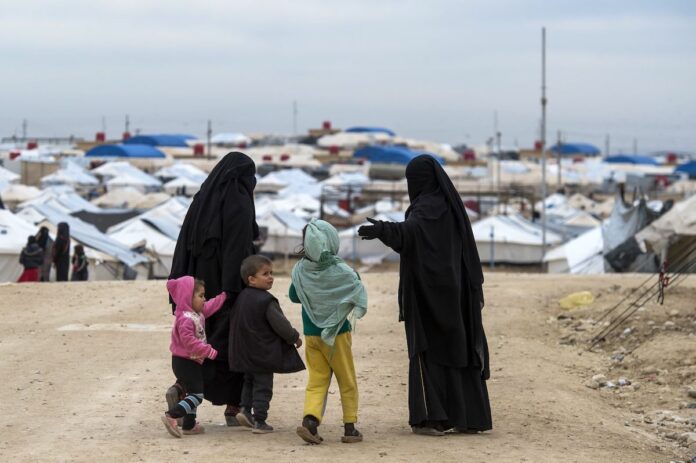Ahmed Qasim Meften – Director of the Research and Studies Department at the Ministry of Immigration.
Key preface and methodological courses:
Data and information obtained from monitoring the situation of the areas controlled by ISIS in the period 2014-2017 indicate that their residents are subject to the organization’s procedures regarding the destruction of official documents issued by the Iraqi government, which were owned by the residents, and regulate their affairs about documenting marriage and divorce contracts, ownership, birth data, deaths, civil status IDs, passports, driving licenses, and others. Instead, the group issued special documents (not recognized by the Iraqi government) to document the aforementioned cases.
The population residing in the organization’s areas at that time was classified among those who voluntarily joined and pledged allegiance to the organization and engaged in hostilities, logistics, and administrative activities, and others who joined and pledged allegiance to the organization voluntarily and did not engage in combat operations but participated in logistical and administrative work and activities. Others were forced to pledge allegiance to the organization and live in it and did not participate in combat and terrorist operations.
The military operations to liberate the areas also resulted in the total or partial destruction of villages and areas inhabited by the elements of the organization or the population residing in the areas under their control, in addition to the destruction of the property and savings in their possession, and many of the dead and fleeing inside and outside Iraq from the elements of the organization and their families, or associated with them.
Nearly five years after ISIS was defeated, the areas it controlled were liberated, and those wanted by law were prosecuted and held accountable, the organization’s members (fleeing, detained, or killed) left their families, the vast majority of whom represent (women, children and the elderly) without a breadwinner, and in difficult humanitarian and living conditions, facing many problems. They were stranded and subjected to security scrutiny and investigation. After going through a series of government actions, they classified them that he dealt with at different levels. Among them are those fleeing Iraq, most of whom live in the Al-Hol camp in Syria, and their number is estimated at (30,000) displaced individuals who still need security scrutiny and investigation. Inside Iraq, they are divided into displaced people living in camps in Nineveh governorate and the governorates of the Kurdistan Region, displaced persons scattered in host communities in several Iraqi governorates, or returnees to their areas of origin who have been subjected to security screening and are not subject to legal prosecutions, tribal claims, or revenge.
According to the data referred to above, the present study comes as a position assessment of the situation of the displaced among them, whose responsibilities for managing their affairs and solving their problems are the responsibility of the Federal Ministry of Migration and Displacement, in coordination and partnership with other Iraqi institutions and ministries, each according to its sectoral specialization, as it aims to identify their reality, the nature of the problems and challenges they face, and works to propose solutions and treatments through the initiative to present several projects and programs that would alleviate their suffering, rehabilitation, and reintegration. The current study adopted the methodology of reviewing the literature, documents, and reports related to the target group, as well as carrying out field visits and conducting in-depth interviews with the relevant authorities (families of ISIS affiliates, camp residents, host communities, residents in host communities, camp management, organizations working in the camp, ministry employees in the concerned branches, and local government) through forms prepared for this purpose in the governorates of Nineveh and Salah al-Din.











